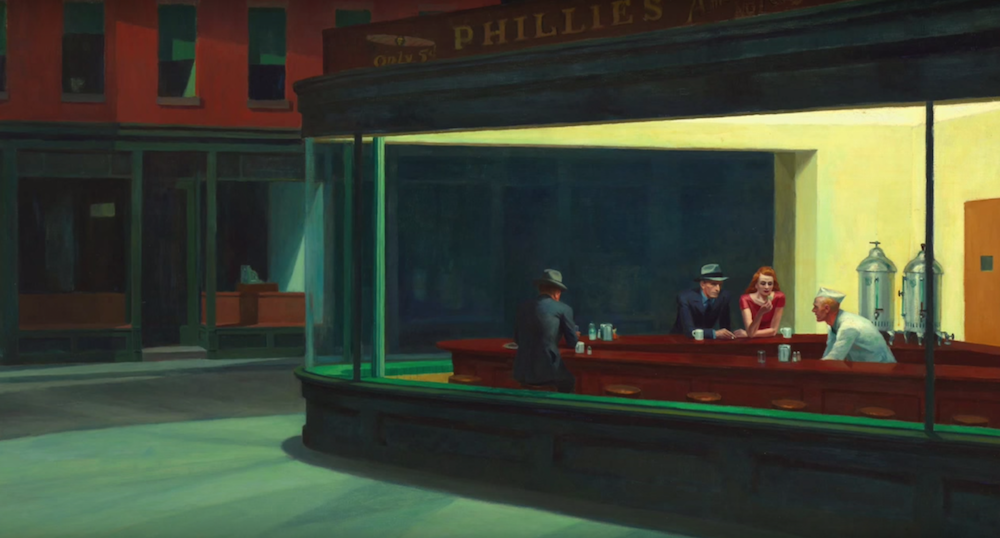Fist Fight
 David Antrobus Posted on
David Antrobus Posted on  Sunday, February 16, 2020 at 3:10PM
Sunday, February 16, 2020 at 3:10PM  Darkened once-golden evening. The sundown edge of suburbia. Almost town. Arteries not veins. Two men, fortysomething, exiting vehicles and embracing.
Darkened once-golden evening. The sundown edge of suburbia. Almost town. Arteries not veins. Two men, fortysomething, exiting vehicles and embracing.
“Glad you’re back. Been awhile.”
“Yeah. Gone through some shit.”
“I heard.”
Corvids vying with traffic sound. The fractured hum of life. Someone’s radio, in and out.
“You look banged up.”
“Yeah, well. Got in a fist fight.”
“Yeah?”
“Uh, yeah.”
“It ain’t a fist fight if whatever you’re fighting don’t have fists.”
“Huh?”
Something big and loud grinding through its gears as it passes. A wrapper helixing in its wake.
“You got issues with readin’ comprehension, Johnno?”
“Nah, you fuckin’ said it, G. You didn’t write it.”
Neighbor’s charcoal pit cross taking exception to some damn thing, loud and hoarse and obdurate behind chain link. Eyes rimmed pink as a skeptic.
“What? What the fuck you saying right now? I can’t barely hear nothing.”
“All I meant was, I got in a fist fight and everything went bad.”
“And all I’m sayin’ is, it weren’t no fist fight.”
“You’re arguin’ a technicality. Lookit.” Showing his forearms. “My fists got scars and blood and shit.”
“I don’t see no shit.”
“Har dee fuckin har har.”
“You ain’t grasping my point, brother.”
“Oh, I grasp it. You’re belaborin’ it.”
“I really ain’t.”
“Guess we’re at an impasse then.”
Since the predawn birth of this, our ink-blue century, no one on this wild unruly earth can hear without alarm an airliner whine and roar its public distress below a certain layer of the sky. A passenger jet screaming and gathering its drifts of air like skin folds. You almost imagine the faces, O-gaped at portholes, desolate, foreseeing their own doom and ours.
“A’right.” Sighing. “I don’t quite follow you. But I swear to you I got into some kinda altercation, and I think it’ll have its consequences.”
“Not a fist fight, then.”
“You’re right. Fuck it. You’re right. Whatever. She never raised her fists. Not even once. I paid her back for every time she made me feel like less than a man.”
“It’s what I thought. Just needed to hear it. Let it out, brother. You did right. We’re good.”
The murderous honest skies, the roadkill smears, the untamed dogs, ruined ungainly wives, the dubious cries of earmarked passersby, all of it blurred by permissions and always justified.
But please, amigos, mi compañeros, hear this, my only protest: not everything has fists, and such an atrocity’s only the slightest of starts.







